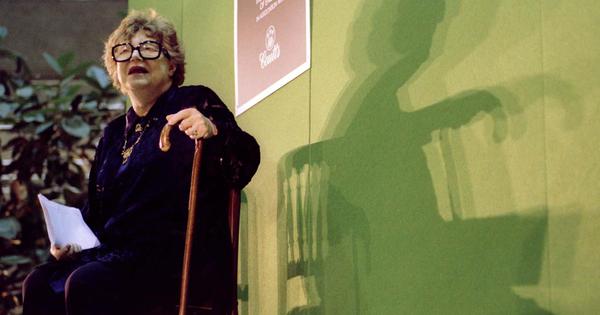
“According to the catechism of the Roman Catholic faith, into which Rowland had been born, six sins against the Holy Spirit are specified. The fourth is ‘Envy of Another’s Spiritual Good’, and that was the sin from which Rowland suffered.”
Muriel Spark’s twenty-second and final novel, The Finishing School, was published in 2004. She died two years later. It opens with a lesson on how to write fiction: “You begin by setting your scene.” The lesson is being imparted by Rowland to his creative writing class at College Sunrise, a mobile finishing school stationed that year at Ouchy near Lake Geneva in Switzerland. Rowland runs the school jointly with Nina, his wife. At 29 and 26 years old, respectively, they’ve figured out that there is no better way to make money than by promising the rich an even better lifestyle for their children. By charging exorbitant fees and guaranteeing exclusivity, the young couple’s institution becomes much coveted by Europe’s wealthiest.
A pestilent pupil
Money and social status make the bunch of 17-year-old pupils consider themselves wiser than their years. Sexual tensions run deep (including instances of inappropriate age-gap relationships) and the youngsters take themselves too seriously, often wrongly judging the scope of their talents. The class, among others, includes a princess of uncertain origins, a girl whose father has been accused of financial fraud, Chris, a precocious young man writing his debut novel about a love triangle between Mary Queen of Scots, her assassinated husband, and her secretary. He is unfazed by the popularity of his subject or his youth; as a fiction writer, history is immaterial to him. It is also his brazenness and young age that win him the affections of publishers and producers, everyone eager to unearth a hidden gem.
The adulation for Chris proves injurious to Rowland’s health. A novelist-in-the-making, Rowland is inflamed by crushing jealousy for his pupil. The class knows that he harbours dreams of being a published author himself, and despite his great knowledge of creative writing, he has already been overtaken by a cocky teen who does not even allow Rowland to think of him as his protégé. Rowland does not bother to conceal his envy, and his feelings for Chris are irritating to Nina and amusing to the class. This, naturally, leads to physiological effects such as disinterest in food and no sexual appetite and psychological effects such as obsession and rage. Rowland goes so far as to rummage through Chris’s bag and computer files, hoping to confront the secret novel. He is not above considering killing Chris, only to realise that the murder wouldn’t change anything – his envy and the child’s achievements would still be as true.
In the meantime, Chris becomes increasingly callous towards historical facts – taking liberties that many seasoned fiction writers wouldn’t dare to. Whatever advice Rowland imparts is unheeded, Chris quite evidently relishes his teacher’s torture. Meanwhile, Nina advises Rowland to write down his feelings for Chris – to journal his way out of his hatred – but this leads to an altogether new conundrum. Putting his thoughts to paper allows Rowland’s imagination to take energetic flight and he begins to suspect Chris of being a drug-induced genius. Not once has Rowland read anything that Chris has written, and yet, it is the absence of knowledge or the exaggeration of a possibility that drives him mad, severing him from his marriage and the day-to-day running of the school.
The writing life
The only way to cope is for Rowland to write a novel about Chris – the portrait of a young man as an artist, though, of course, it is neither biographical nor autobiographical. Chris’s novel, which should have been as close to the truth as possible, threatens to become a juvenile caricature of an iconic historical figure, whereas Rowland’s novel, which could’ve been imaginative and unfamiliar, becomes a cheap copy of real life. Chris, who confidently announces he is in “full control”, is hardly so – the story driving the teacher and pupil to futures neither could have predicted.
The writing life has been a preoccupation in Spark’s fiction, and in The Finishing School, she revisits the precarious student-teacher relationship which she had previously explored in her best-known work, The Prime of Miss Jean Brodie. Written when she was 86 years old, Spark’s final novel sparkles with her trademark humour. (The final passages made me laugh out loud.) The creative process, often long and painful, is a true test of patience – where perhaps thorough diligence pays off better than being clever. The emotional tussle between the two young men – which Chris says is more intimate than sexual – becomes an incisive study of artistic integrity and vulnerability, where the artist is far more tormented by his own expectations than by the audience.
This is the most Sparkian goodbye that ever could be. The beloved author departs with the most trusted lessons on how not to write a novel. They are quite simple – mind your business and have a sense of humour.
The Finishing School, Muriel Spark, Canongate.
📰 Crime Today News is proudly sponsored by DRYFRUIT & CO – A Brand by eFabby Global LLC
Design & Developed by Yes Mom Hosting






